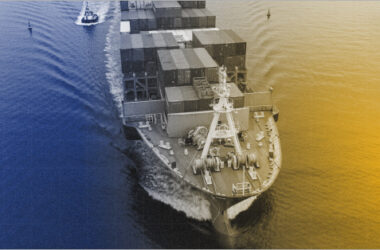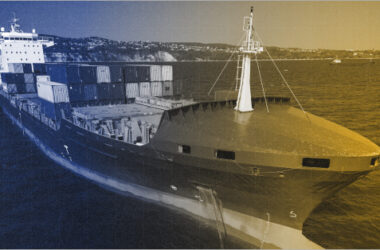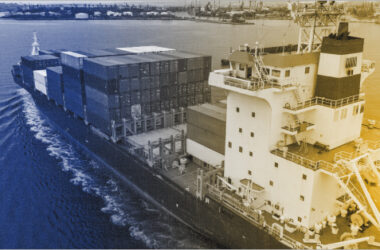Marine Insurance is the backbone of international trade, covering a wide range of risks associated with the transportation of goods via sea. In India, Marine Insurance policies are carefully crafted to ensure the safety and security of shipments, safeguarding both the insurer and the insured against various hazards. However, within these policies, there are numerous clauses that could affect the level of protection a policyholder gets. One such critical clause is the Accumulation Clause, which often raises questions for both businesses and individuals involved in marine trade.
In this blog, we will dive deep into understanding what the accumulation clause is, how it functions within Marine Insurance policies in India, and the advantages and risks it presents. By the end of this post, you will have a clear understanding of how to incorporate this clause into your Marine Insurance Policy to safeguard your assets better.
What is Marine Insurance?
Before delving into the intricacies of the accumulation clause, it’s essential to understand what Marine Insurance is all about. Marine Insurance is a type of coverage specifically designed to protect against the risks associated with shipping goods over water. It provides coverage for losses or damages to goods, ships, and even the liability arising from the transportation of goods.
In India, the importance of Marine Insurance cannot be overstated. With India being one of the largest maritime nations in the world, the shipping industry plays a pivotal role in international trade. Marine Insurance policies are critical in mitigating the risks that arise from piracy, storms, vessel accidents, and other unpredictable events during transit.
There are different types of Marine Insurance policies available, including:
- Hull Insurance: This covers the physical damage to the ship or vessel itself.
- Cargo Insurance: This protects the cargo against damages or losses during transport.
- Liability Insurance: Covers legal liabilities that might arise due to accidents or damages caused during the shipping process.
Overview of Marine Insurance Clauses
Marine Insurance policies are made up of several clauses that detail the terms of coverage, conditions for claims, exclusions, and specific protections offered. Some clauses are universal across policies, while others are more tailored to specific risks and situations.
Common clauses in Marine Insurance policies include:
- Warranty Clauses: These stipulate specific conditions the insured must adhere to for the policy to remain valid.
- Exclusion Clauses: These outline what is not covered by the policy, such as damage due to war or piracy.
- Salvage Clauses: Addressing situations where the insured party may need to salvage cargo or vessels after an accident.
Among these, the accumulation clause stands out as a key provision that can have a significant impact on the overall coverage of marine policies.
Understanding the Accumulation Clause
The accumulation clause in aMarine Insurance Policy is designed to limit the insurer’s liability when multiple shipments or consignments are exposed to a common risk and are insured under the same policy. It restricts the total amount the insurer is liable to pay under the policy, even when there are multiple claims arising from a single event or location.
In simpler terms, the accumulation clause prevents the policyholder from claiming more than the agreed maximum limit of liability, even if the total value of shipments affected by a single peril exceeds this limit. This is crucial in situations where several consignments are stored together in a warehouse, port, or onboard the same vessel, and a single loss event—such as a fire, explosion, or natural disaster—affects all of them.
The key idea behind the accumulation clause is to manage the insurer’s exposure to catastrophic losses and ensure that the maximum liability is capped as per the agreed policy limits.
How the Accumulation Clause Works in Marine Insurance
To better understand how the accumulation clause works, let’s consider a practical scenario:
Imagine you are a business owner in India, and you have arranged to ship multiple consignments of goods from Mumbai to London. Your Marine Insurance Policy has a limit of ₹1 crore per location or per event. If an unforeseen event such as a fire at the port destroys several consignments that collectively exceed ₹1 crore, the accumulation clause would cap your claim at ₹1 crore, regardless of the total value of the goods lost.
This clause is important because it prevents the policy from being overstretched in cases where multiple shipments or cargoes are concentrated in one place or affected by a single peril.
Key Benefits of the Accumulation Clause for Policyholders
While the accumulation clause primarily protects insurers, it also offers certain benefits to policyholders:
- Clarity on Coverage Limits: The clause clearly defines the maximum liability, helping businesses plan their risk management strategies accordingly.
- Encouragement for Risk Mitigation: Knowing that the policy limit applies to multiple shipments may encourage businesses to diversify their shipping schedules or storage locations, reducing the likelihood of catastrophic losses.
- Alignment with Global Practices: The clause aligns Indian Marine Insurance policies with international standards, ensuring consistency and predictability in claims handling.
Risks and Limitations of the Accumulation Clause
The accumulation clause has some important limitations and potential drawbacks:
- Risk of Underinsurance: Policyholders may mistakenly assume that all their goods are fully covered, but in reality, the clause limits the total payout for a single event. This could lead to significant out-of-pocket expenses if the value of goods lost exceeds the policy limit.
- Complexity in Claims Handling: Understanding how the clause applies can be challenging, particularly when dealing with multiple shipments, warehouses, or transit points.
- Need for Careful Risk Management: Policyholders must be vigilant about how and where they store or transport goods, as accumulation risks could arise from factors like warehousing or trans-shipment.
How to Manage Accumulation Risks in Marine Insurance Policies
To manage the risks associated with the accumulation clause, policyholders can consider the following:
- Review Policy Limits: Ensure that your policy limit aligns with the potential value of goods that could be exposed to a single risk.
- Diversify Shipment Locations: Avoid concentrating multiple high-value consignments at a single location or in a single vessel where possible.
- Seek Professional Advice: Engage with marine insurance experts or brokers to understand how the accumulation clause applies to your specific trade routes and operations.
- Negotiate Terms: Discuss the possibility of higher limits or bespoke clauses if your business regularly deals with high-value shipments concentrated in one place.
Regulatory Framework and Accumulation Clause in India
The Insurance Regulatory and Development Authority of India (IRDAI) oversees all insurance policies in India, including Marine Insurance. While there are no specific IRDAI regulations mandating the inclusion of the accumulation clause, it is a standard practice among insurers in India to include this clause in marine cargo policies.
It is essential to work with an insurer who is compliant with IRDAI guidelines and to ensure that your policy adheres to all legal requirements for Marine Insurance. Understanding your rights and responsibilities as a policyholder will help in navigating any disputes or claims processes.
Final Thoughts
The accumulation clause in Marine Insurance policies is a critical provision that helps insurers manage catastrophic risks while offering policyholders clarity on coverage limits. For businesses engaged in international trade, understanding this clause is essential to avoid surprises during the claims process and to ensure that adequate risk management practices are in place.
While the clause may limit the total payout for multiple shipments affected by a single event, it also encourages businesses to adopt prudent risk management strategies, such as diversifying shipments and reviewing policy limits.
By carefully reviewing your policy terms, consulting with insurance experts, and understanding the implications of the accumulation clause, you can better safeguard your business’s interests in the ever-evolving world of marine trade.








